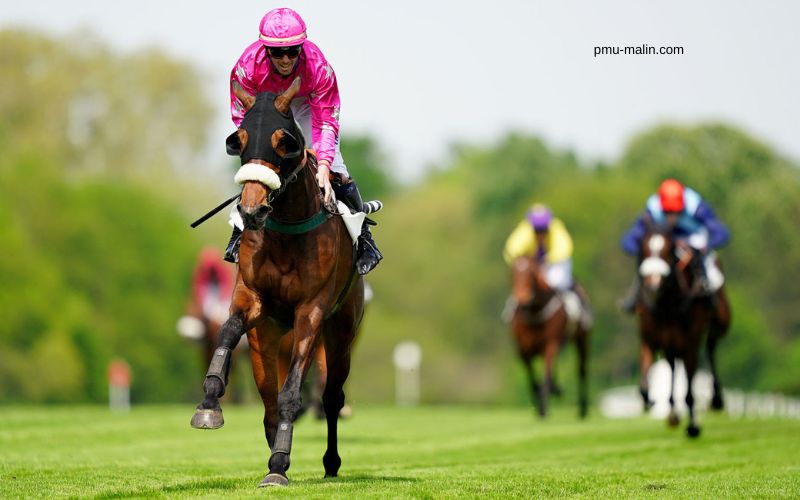Origins and Evolution
The Don-PMU, short for “Le Don de Paris-Mutuel Urbain,” has its roots in the early 20th century when horse racing began to gain popularity in France. The PMU, or Pari Mutuel Urbain, was established in 1930 as a national betting organization to manage and regulate horse race betting across the country. Initially, its primary purpose was to provide a legal framework for betting and to ensure fairness in gambling practices.
However, as the PMU grew in influence and profitability, it also became a focal point for social responsibility. The idea of donating a portion of its proceeds to public causes emerged as a way to give back to society and enhance its image beyond mere gambling. Thus, the concept of “Le Don-PMU” was born—a voluntary contribution made by the PMU from its revenues to support various charitable, cultural, and community projects.
Cultural Significance
In French culture, gambling has long been intertwined with societal norms and leisure activities. From the elegant horse races at Longchamp to the lively atmosphere of neighborhood PMU betting shops, betting on horses is not just about wagering money; it’s about camaraderie, tradition, and a shared passion for the sport.
The Don-PMU adds another layer to this cultural tapestry. It reflects a collective effort to use the profits generated from gambling for the collective good, echoing broader French ideals of solidarity and social welfare. This cultural ethos is deeply ingrained in the French psyche, where public services and support for the arts are highly valued.
Mechanics and Implementation
Practically, how does the Don-PMU work? Each year, the PMU allocates a percentage of its revenues—typically around 1%—to charitable and cultural donations. These funds are distributed through various channels, including partnerships with nonprofit organizations, direct contributions to cultural institutions, and support for local community projects.
The allocation process is carefully managed to ensure transparency and effectiveness. A committee oversees the distribution of funds, evaluating proposals and selecting projects that align with the PMU’s philanthropic goals. This structured approach not only maximizes the impact of donations but also reinforces the PMU’s commitment to social responsibility.
Impact on Society
The impact of the Don-PMU extends far beyond financial contributions. By supporting a wide range of initiatives—from youth sports programs to historical preservation projects—the PMU plays a crucial role in fostering community cohesion and enriching cultural life across France.
For example, donations may fund educational workshops at museums, sponsor local festivals, or provide scholarships for aspiring athletes. These initiatives not only benefit individuals and communities directly but also contribute to the cultural vibrancy and social fabric of French society as a whole.
Challenges and Criticisms
Despite its positive contributions, the Don-PMU is not without its critics. Some argue that relying on gambling revenues for charitable purposes perpetuates dependency on an industry that can be socially divisive. Others question the ethical implications of promoting gambling as a means of funding public goods, especially in light of concerns about addiction and responsible gambling practices.
Moreover, there is ongoing debate about the allocation of funds and whether they sufficiently address the most pressing social needs. Critics argue for greater transparency and accountability in the distribution process to ensure that donations have the greatest possible impact on society.
Future Prospects
Looking ahead, the future of the Don-PMU may evolve in response to changing societal attitudes and regulatory frameworks. As concerns about gambling addiction and corporate responsibility continue to grow, there is increasing pressure on organizations like the PMU to demonstrate their commitment to ethical practices and social welfare.
At the same time, the Don-PMU represents a unique model of public-private partnership that harnesses the economic power of gambling for the public good. By adapting to new challenges and embracing innovation, the PMU can continue to play a vital role in supporting cultural, educational, and community initiatives across France.
Conclusion
In conclusion, the Don-PMU stands as a testament to the intersection of culture, commerce, and community in French society. It embodies a tradition of generosity and solidarity that reflects the nation’s values and aspirations. While not without its challenges, the Don-PMU continues to make a positive impact by supporting diverse initiatives and enriching the cultural fabric of France.
As France navigates the complexities of modernization and globalization, institutions like the PMU serve as guardians of tradition and pillars of social responsibility. By embracing innovation and adapting to changing times, the Don-PMU can continue to fulfill its mission of promoting the common good and enhancing the quality of life for all French citizens.

